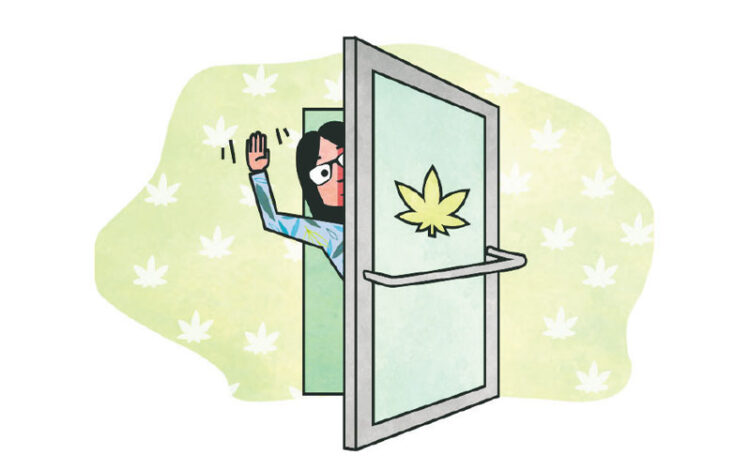Managing a dispensary requires a lot of paperwork and compliance. It’s essential to stay subscribed to cannabis laws and local city regulations because failing to adhere to them could result in costly fines.
Develop a distinctive brand language that appeals to your target market and encapsulates your business. Share educational posts, promotions, behind-the-scenes glimpses, and more to build brand recognition and drive business growth.
Do Bring Essentials
A dispensary needs a lot of upfront capital to start up. Most states have programs to assist with initial liquidity requirements, but still, it’s not cheap to open a cannabis store.
Dispensaries need to have the proper hardware in place to handle high-volume transactions, ensure the integrity of products, and prevent theft. Investing in quality hardware can save you money in the long run.
The cannabis market is a highly regulated industry, and dispensaries, like the Exeter dispensary, often need to comply with local regulations when it comes to marketing. This can often create a significant barrier to entry for many new brands.
Dispensaries may encourage (or even require) customers to make an account. Typically, this allows them to track purchase history and create personalized marketing materials. It’s essential to be aware of this and to ask if you are comfortable with the company storing your information. If you’re uncomfortable, avoiding this option is a good idea. Some state laws allow customers to delete their accounts after purchasing.
Do Check the Menu
For many, cannabis shopping is a new experience. For this reason, following dispensary etiquette is essential to ensure you get the most out of your visit. This includes being fully prepared for your trip, including bringing the appropriate identification and having cash to purchase.
Whether you are visiting a medical or recreational marijuana store, you must bring the proper documentation. This includes a government-issued form of ID as well as proof of age. It is also essential to bring cash, as not all dispensaries accept credit cards.
Proper documents will help keep you from a budtender or other staff member when purchasing your products. The appropriate documentation will allow you to enjoy applicable tax exemptions and discounts.
Do Avoid Loitering
While the cannabis industry is booming, it’s essential to understand local business environments and consumer demographics. The competitive landscape in different regions differs significantly, and a deep understanding of regional differences can help brands develop impactful strategies that resonate with consumers.
A significant concern in some communities is the alleged link between marijuana shops and crime, including property crimes and gang activity. The research on this issue has been mixed. Still, it’s important to remember that dispensaries have security systems and are often staffed with security guards who can act as “eyes on the street” to prevent theft and other criminal activity.
Additionally, a growing number of dispensaries have their internal security teams and are often required to use security systems that monitor activity in the store. In some cases, if customers or employees are caught breaking the law, they can face serious consequences, including criminal charges. These security precautions can lessen the likelihood of theft and other crimes but can’t replace further municipal laws and initiatives to discourage criminal activity.
Do Avoid Pets
As cannabis products become more prevalent, more pets may be exposed to marijuana. This is of particular concern for dogs, which are ten times more sensitive to THC than humans.
Ingestion of marijuana and its byproducts can cause a variety of symptoms, including uncoordinated movements, balance disturbances, disorientation, drooling, variations in heart rate and temperature rhythms, and urinary incontinence. More severe signs of marijuana poisoning include low blood pressure, tremors, and seizures. If these symptoms occur, emergency veterinary treatment is needed.
Veterinarians should be honest with pet owners about marijuana use if known or suspected. This will help with the diagnosis of possible exposure to marijuana-containing products and allow appropriate treatment to begin immediately.
Owners should keep all marijuana and its products out of reach of their pets, just as they would with alcohol or medications. It is best to store these items in a locked container that cannot be opened, such as an empty 900-gram coffee can with a secure top. This will prevent unauthorized access and accidental ingestion. Keeping these products away from foods and treats is also a good idea.
Do Avoid Phone Conversations
If you’re entering the cannabis industry, it’s essential to understand what consumers want and how your competitors are positioning themselves. This can help you find the product/service offerings and marketing strategies that best meet the needs of your target market and help you create a unique value proposition.
Ancillary businesses are a critical part of the cannabis industry and can be found in various markets, including marketing, professional services, security companies, and more. These businesses typically avoid the onerous licensing and permitting requirements that apply to plant-touching businesses and instead provide products or services that support the cannabis industry.
For example, several cannabis companies use text messaging to engage with their audience. However, it’s essential to be mindful of TCPA (Telemarketing Consumer Protection Act) rules and state-specific do-not-call/do-not-text laws that may apply. Unless you’re an ancillary company with a legitimate prior-existing relationship with your customer, you need their express consent to send them marketing texts. Moreover, it would help if you scrubbed against relevant do-not-call lists and were careful with the language in your marketing messages.






